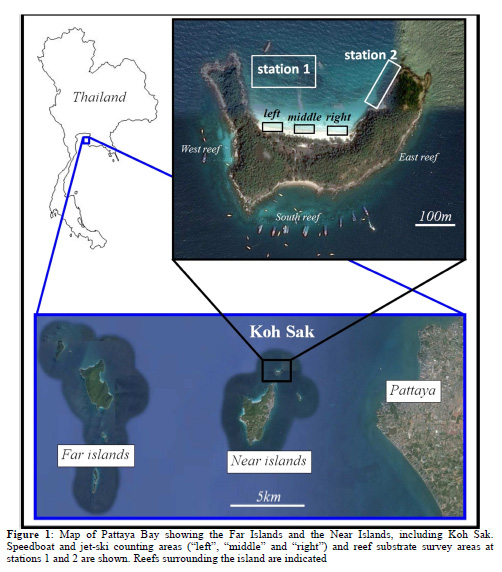Tourism Threats to Coral Reef Resilience at Koh Sak, Pattaya Bay
Main Article Content
Abstract
Coral reefs provide many ecosystem goods and services and rising atmospheric greenhouse gas
concentrations are resulting in higher than normal sea surface temperatures (SSTs), increasing the
frequency and extent of mass coral bleaching and mortality. The loss of corals after bleaching events is
often followed by changes in the reef community and the proliferation of macroalgae, especially in reefs
experiencing tourism and fishing. This change, however, is less likely in reefs experiencing fewer
negative impacts. Using a mixed methods approach to data collection we used boat-traffic surveys, coral
reef substrate surveys and self-complete questionnaires and interviews of scuba divers, island visitors and
their tour guides to assess potential tourism impacts to the coral reef at Koh Sak, Pattaya. The number of
tourists, the intensity of boat traffic and poor management of activities at the island impair the structural
and ecological integrity of the reef thereby affecting its ecological and spatial resilience and capacity to
survive global climate change. To improve reef resilience, there needs to be a shift from exploitative
business practices to a conservation-based industry that creates the infrastructure to ensure visitors
participate in activities that help conserve the reef rather than weaken it.
Article Details
Published articles are under the copyright of the Environment and Natural Resources Journal effective when the article is accepted for publication thus granting Environment and Natural Resources Journal all rights for the work so that both parties may be protected from the consequences of unauthorized use. Partially or totally publication of an article elsewhere is possible only after the consent from the editors.
